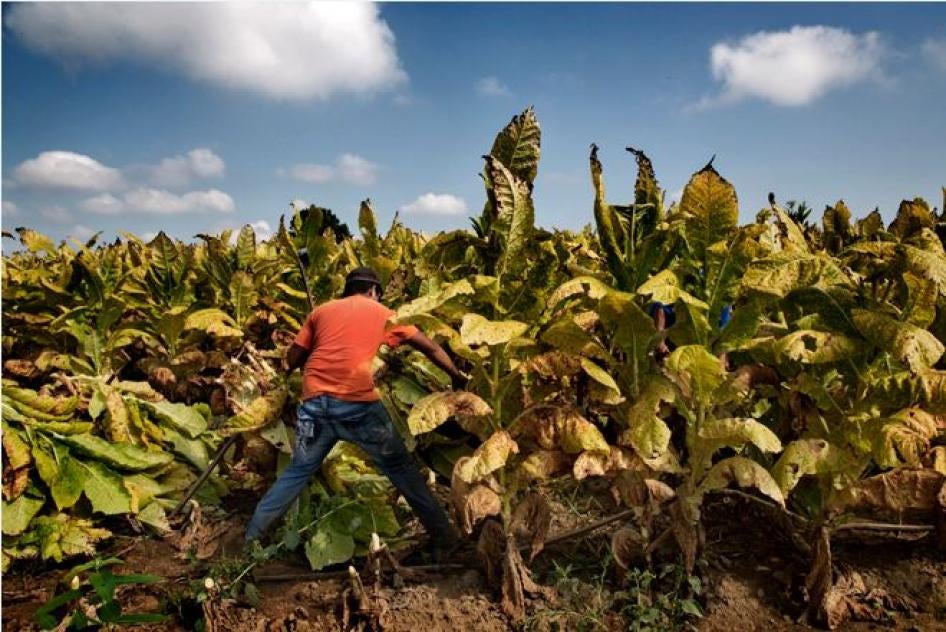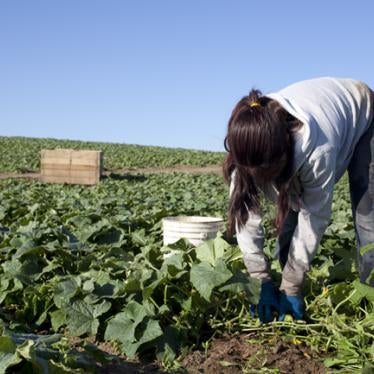(Washington, DC) – A bill reintroduced in the United States House of Representatives on March 31, 2022 by Representatives Lucille Roybal-Allard and Raúl Grijalva would protect child farmworkers in the US from danger, Human Rights Watch said today. The legislation, introduced during Farmworker Awareness Week, would address gaps in US labor law that allow children under 18 to work for hire in agriculture at younger ages, for longer hours, and in more hazardous conditions than in any other sector.
The Children’s Act for Responsible Employment and Farm Safety (CARE Act) would amend US labor law to raise the minimum hiring age in agriculture to 14, and the minimum age for hazardous work to 18, matching the minimum ages for other areas of work.
“Children as young as 12 are being hired to do backbreaking work on US farms, at risk of serious injuries, heat stroke, pesticide poisoning, and even death,” said Margaret Wurth, senior children’s rights researcher at Human Rights Watch. “The CARE Act would provide child farmworkers with important protections given to children working in all other sectors.”
Under the US Fair Labor Standards Act, children can at age 12 legally work unlimited hours on farms of any size with parental permission, as long as they do not miss school. There is no minimum age for children to work on small farms or family farms. Children working in agriculture can do jobs at age 16 that health and safety experts deem particularly hazardous, while in all other sectors, workers must be 18 to do hazardous work.
Based on interviews with more than 200 child farmworkers, Human Rights Watch has published several reports on the dangers they face while tending and harvesting a range of crops in the US, including fruits and vegetables, Christmas trees, cotton, and tobacco. Work in tobacco farming has the added risk of acute nicotine poisoning, which occurs when workers absorb nicotine through the skin, causing nausea, vomiting, headaches, and dizziness, among other acute symptoms.
More US child workers die in agriculture than in any other industry, according to a 2018 US government study. Every day, 33 children are injured while working on US farms.
In addition to raising the minimum working ages in agriculture, the CARE Act would limit the number of hours 14 and 15-year-old children can work on school days and prohibit working before 7 a.m. or after 7 p.m. The legislation would exempt children working on their own families’ farms or participating in educational programs like the 4-H club.
Members of the House of Representatives should act swiftly to bring the legislation for a vote, Human Rights Watch said. The Department of Labor should update regulations on hazardous work for children in agriculture and rigorously enforce child labor laws.
“Existing US child labor laws are woefully out of date and put child farmworkers at unacceptable risk,” Wurth said. “Congress should act swiftly to adopt the CARE Act and ensure that all children are protected equally.”








